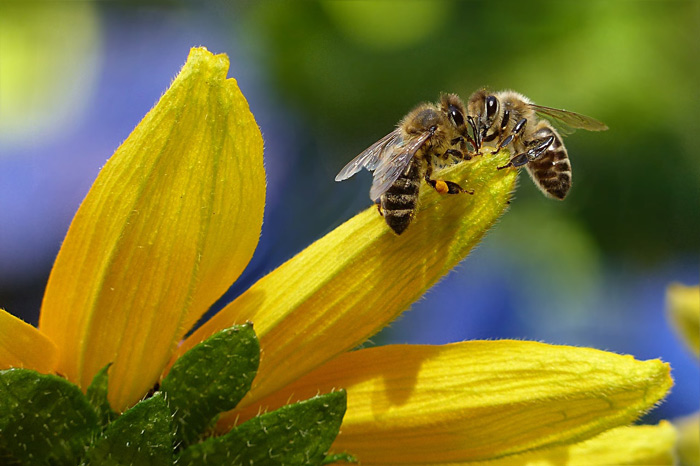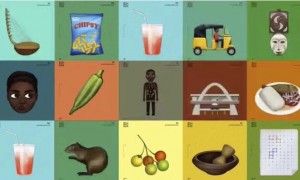荷兰科学家正在训练拥有超强嗅觉的蜜蜂来检测新冠病毒,结果已证实可行,可以在几秒钟内成功识别出新冠病毒的气味。对于一些缺乏检测设备的国家和地区来说,这个办法可谓是便宜又高效。
 [Photo/Pexels]
[Photo/Pexels]
Scientists in the Netherlands have trained bees to identify COVID-19 through their sense of smell, according to a press release from Wageningen University.
瓦赫宁根大学发布新闻稿称,荷兰科学家已成功训练蜜蜂通过嗅觉识别新冠病毒。
The research was conducted on more than 150 bees in Wageningen University's bio-veterinary research laboratory.
科学家在瓦赫宁根大学的生物兽医研究实验室对150多只蜜蜂展开了研究。
The scientists trained the bees by giving them a treat — a sugar-water solution — every time they were exposed to the scent of a mink infected with COVID-19. Each time the bees were exposed to a non-infected sample, they wouldn't get a reward (a process known as Pavlovian conditioning).
科学家通过奖励糖水溶液来训练蜜蜂,每次蜜蜂在闻到感染新冠病毒的貂身上的气味时都会得到奖励。如果蜜蜂闻到的是没被感染病毒的气味样本,则不会得到奖励,这一过程被称作巴甫洛夫条件反射作用。
Eventually, the bees could identify an infected sample within a few seconds — and would then stick out their tongues like clockwork to collect the sugar water.
最终,这些蜜蜂可以在几秒钟内识别出感染新冠病毒的样本,而且它们的舌头会像发条一样伸出来喝糖水。
Bees aren't the first animals to detect COVID-19 by scent. Researchers have also trained dogs to distinguish between positive and negative COVID-19 samples from human saliva or sweat with fairly high levels of accuracy. A small German study found that dogs could identify positive COVID-19 samples 94% of the time.
蜜蜂不是第一种通过气味识别新冠病毒的动物。研究人员也曾训练狗来分辨人类唾液和汗液样本中是否有新冠病毒,准确率相当高。德国的一项小型研究发现,狗识别出新冠病毒阳性样本的准确率为94%。
That's because metabolic changes from the coronavirus make an infected person's bodily fluids smell slightly different than those of a non-infected person.
这是因为新冠病毒带来的新陈代谢变化会让感染者的体液气味与非感染者略有不同。
But researchers still aren't sure whether animals are the best bet for sniffing out COVID-19 cases outside the lab.
不过研究人员还不确定在实验室之外动物能否准确无误地嗅出新冠肺炎病例。
"No one is saying they can replace a PCR machine, but they could be very promising," Holger Volk, a veterinary neurologist, told Nature. PCR machines are what lab technicians use to process standard COVID-19 swab tests.
兽医神经学家霍尔格·沃尔克告诉《自然》杂志说:“我们不是说动物嗅觉可以取代聚合酶链式反应仪,但是动物检测方式前景十分广阔。”聚合酶链式反应仪被实验室技术人员用来做标准化拭子新冠核酸检测。
At the very least, certain animals could be useful for identifying COVID-19 in places or countries in which high-tech laboratory equipment is scarce or inaccessible.
至少,在高科技实验室设备稀缺或无从获取的地区或国家,可以用某些动物来识别新冠病毒。
Wageningen scientists are working on a prototype of a machine that could automatically train multiple bees at once, then uses their skills to test for coronavirus aerosols (tiny virus-laden particles) in the surrounding environment.
瓦赫宁根大学的科学家正在研发一种可以一次自动训练多只蜜蜂的机器,然后这些蜜蜂就可以利用它们的技能来检测周围环境中是否有气溶胶(含有病毒的微小颗粒物)。
英文来源:商业内幕网







